The article delineates ten essential hotel audits pivotal for maximizing operational success, such as revenue management, mystery guest evaluations, night audits, and compliance checks. Each audit type is meticulously crafted to uncover weaknesses, elevate service quality, and guarantee financial accuracy. Ultimately, these audits contribute to enhanced guest satisfaction and profitability within the fiercely competitive hospitality industry.
In the fiercely competitive hospitality industry, operational excellence is not merely a goal; it is a necessity for success. Conducting comprehensive hotel audits serves as a strategic approach for establishments to identify weaknesses, enhance guest experiences, and ultimately drive profitability. However, with various types of audits available, how can hotel owners determine which are essential for maximizing their operational success? This article explores ten critical hotel audits that not only safeguard against risks but also unlock opportunities for improvement and growth in a rapidly evolving market.
Thorough conducted by Lights On focus on scrutinizing pricing strategies, demand forecasting, and market trends. By evaluating these critical components, accommodations can identify weaknesses in their revenue strategies and apply data-informed adjustments that enhance profitability. This assessment not only reviews current practices but also provides actionable recommendations tailored to the unique market conditions of each property. Furthermore, these insights empower hotel and restaurant owners to make informed decisions, ultimately driving success in a competitive landscape.
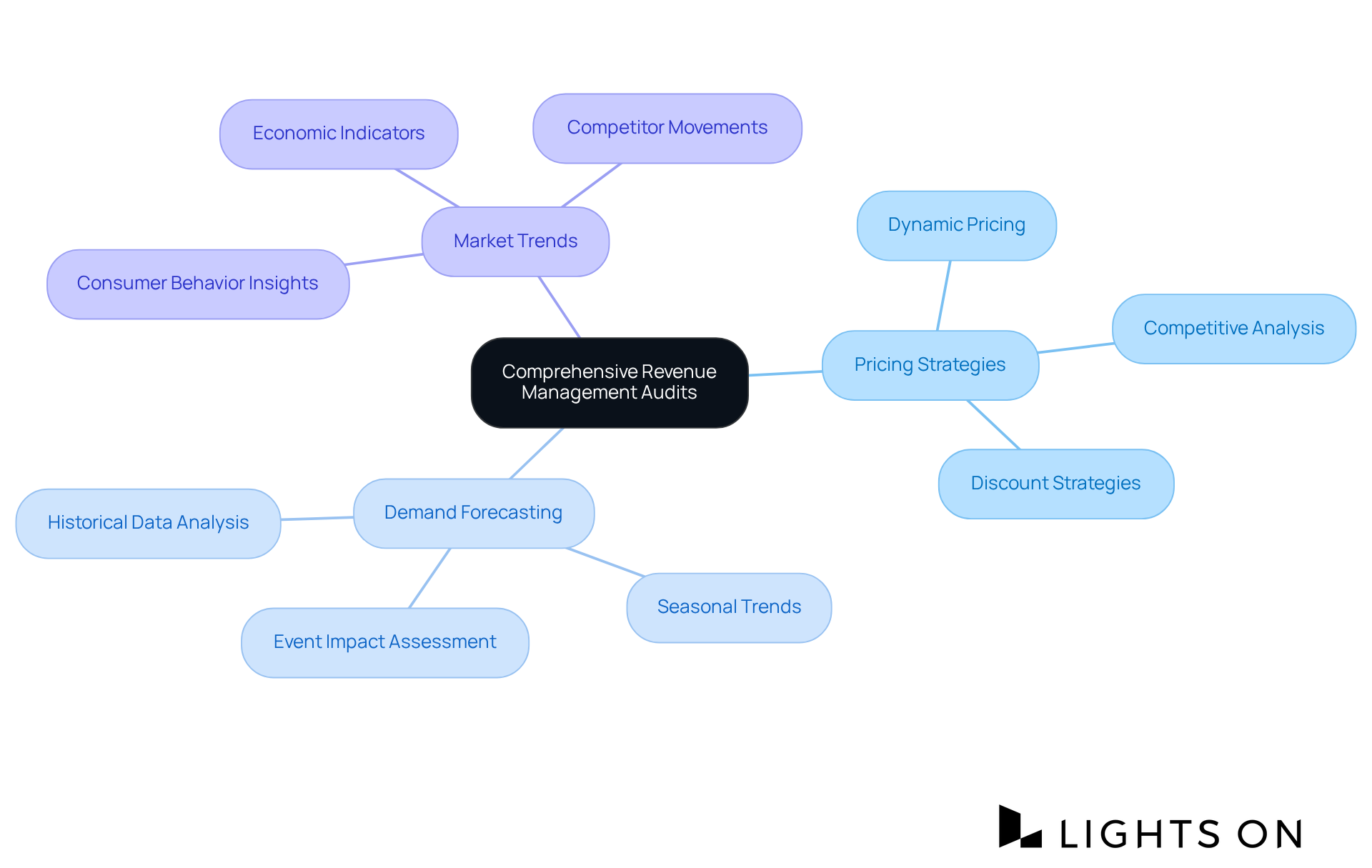
Hotel audits conducted by mystery visitors serve as a crucial tool for accommodations, employing assessors to experience the service as a typical patron would. This approach yields vital insights into service quality, cleanliness, and overall . By pinpointing areas that require enhancement, it cultivates a culture of accountability among staff.
Systematic examination of feedback allows accommodations to implement targeted improvements, significantly boosting visitor satisfaction. Consequently, establishments frequently observe a direct correlation between enhanced service quality and increased occupancy rates, coupled with a rise in positive online reviews.
As we move into 2025, the focus on hotel audits is anticipated to intensify, as hotels endeavor to meet evolving traveler expectations and utilize insights to nurture genuine customer loyalty. Expert insights indicate that these evaluations are essential in crafting a memorable guest experience, ultimately driving higher satisfaction and fostering repeat business.
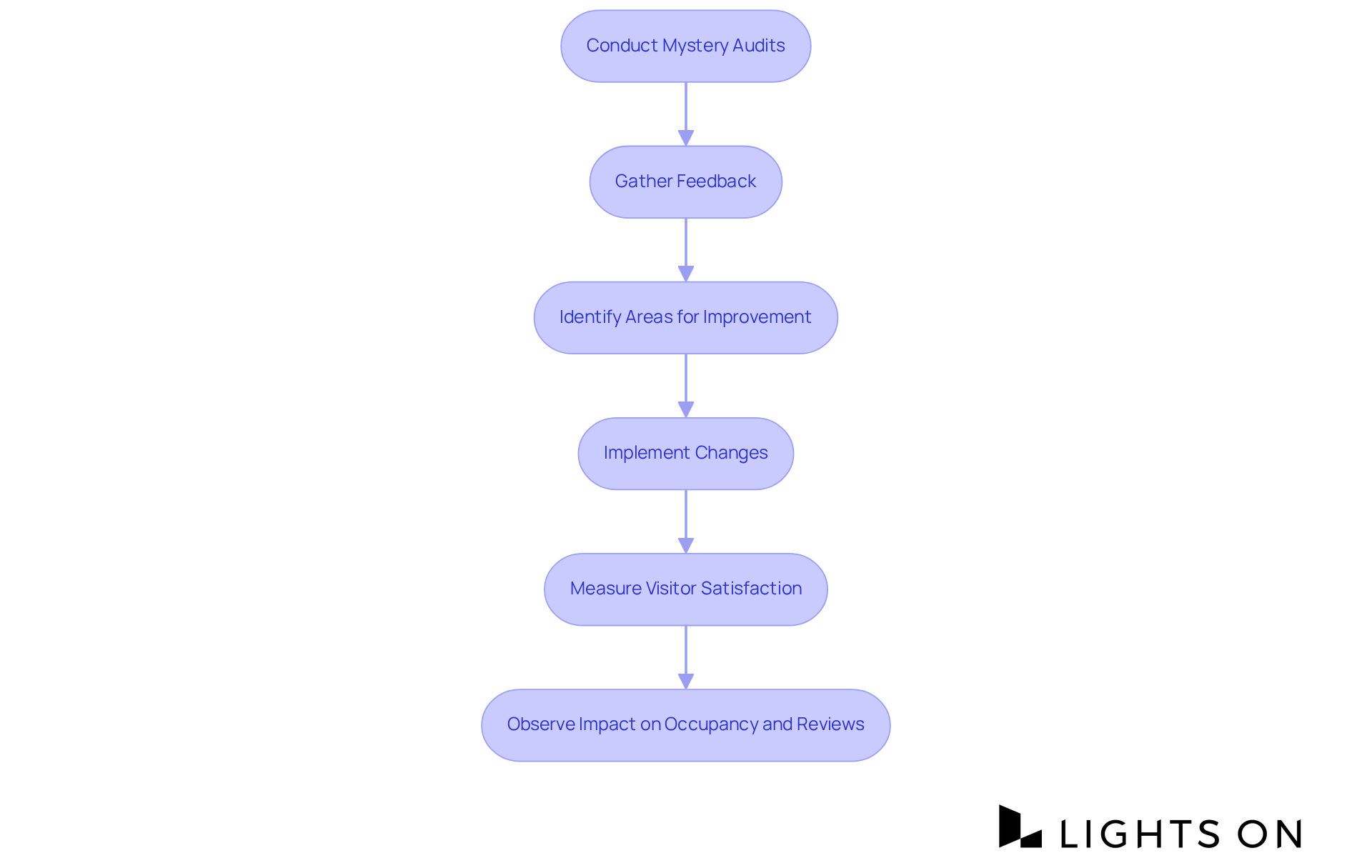
Night reviews are essential at the conclusion of each day, serving to reconcile daily transactions and guarantee that all revenue is meticulously accounted for while addressing any discrepancies. This critical process not only safeguards against but also provides valuable insights into operational performance. By understanding these dynamics, establishments can make informed choices regarding staffing and resource distribution, ultimately enhancing their overall effectiveness.
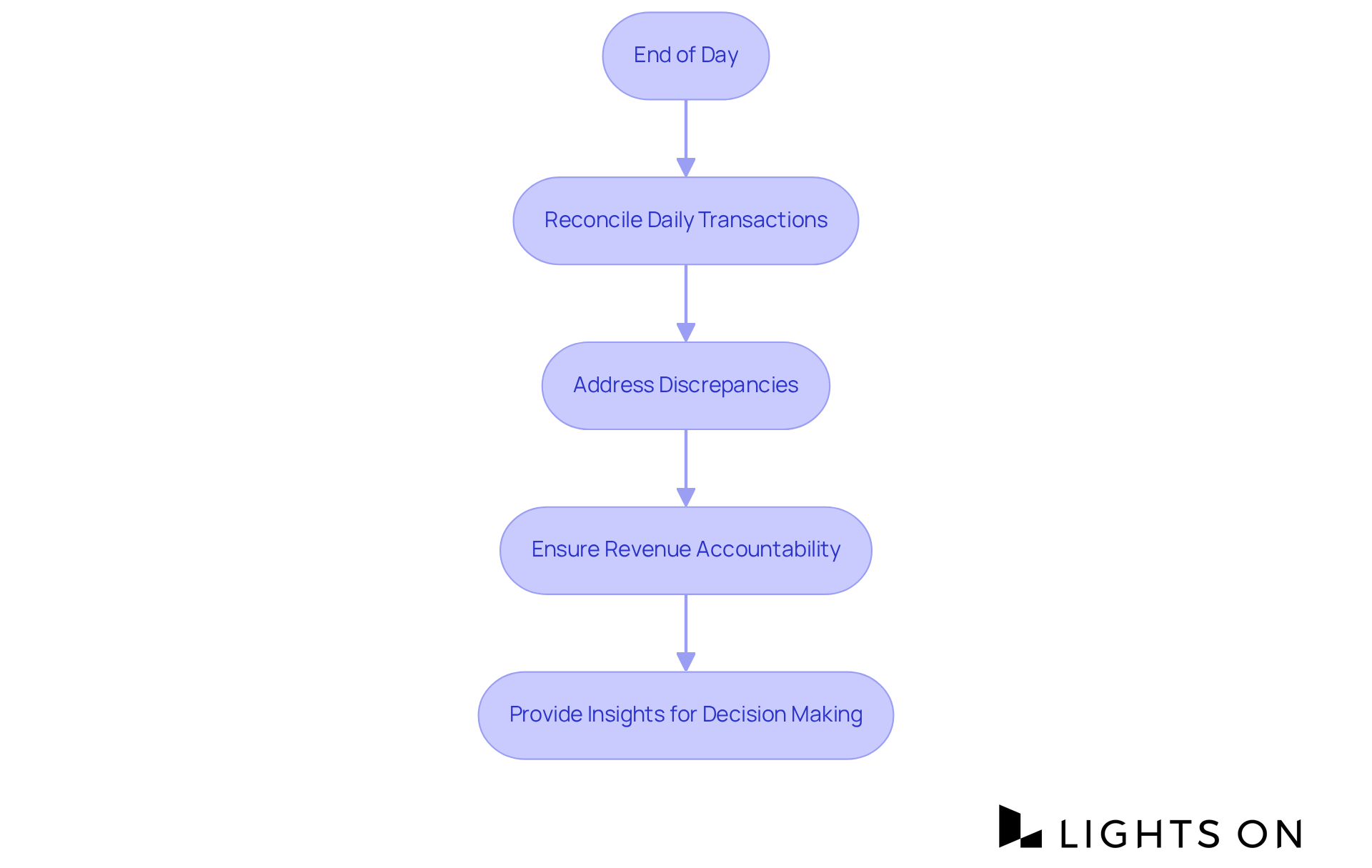
Energy evaluations serve as a critical tool for analyzing an establishment's energy usage trends, identifying specific areas where efficiency can be enhanced. By adopting energy-efficient practices, accommodations not only lower their operational expenses but also bolster their sustainability image—an increasingly significant factor for eco-aware travelers. This proactive approach not only addresses immediate financial concerns but also aligns with the growing demand for environmentally responsible practices in the hospitality industry.
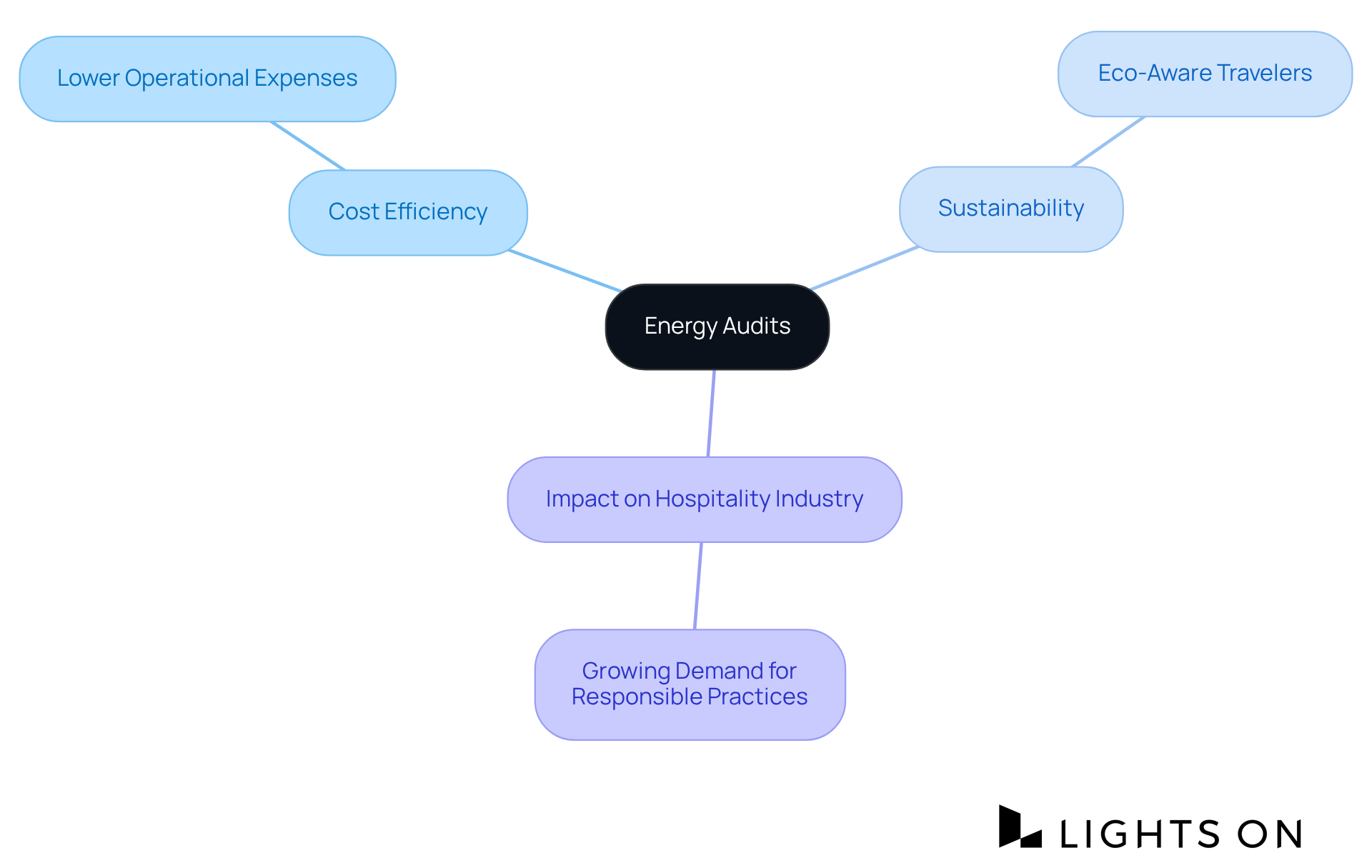
Compliance evaluations serve as a critical measure of an establishment's adherence to local, state, and federal regulations, including essential health and safety standards. Identifying potential compliance gaps not only protects the establishment's reputation but also helps avoid costly penalties. By taking proactive measures to address these gaps, establishments can position themselves as leaders in their industry, ensuring a safe and compliant environment for both employees and customers. Furthermore, the importance of regular compliance assessments cannot be overstated, as they underpin the foundation of operational excellence and customer trust.
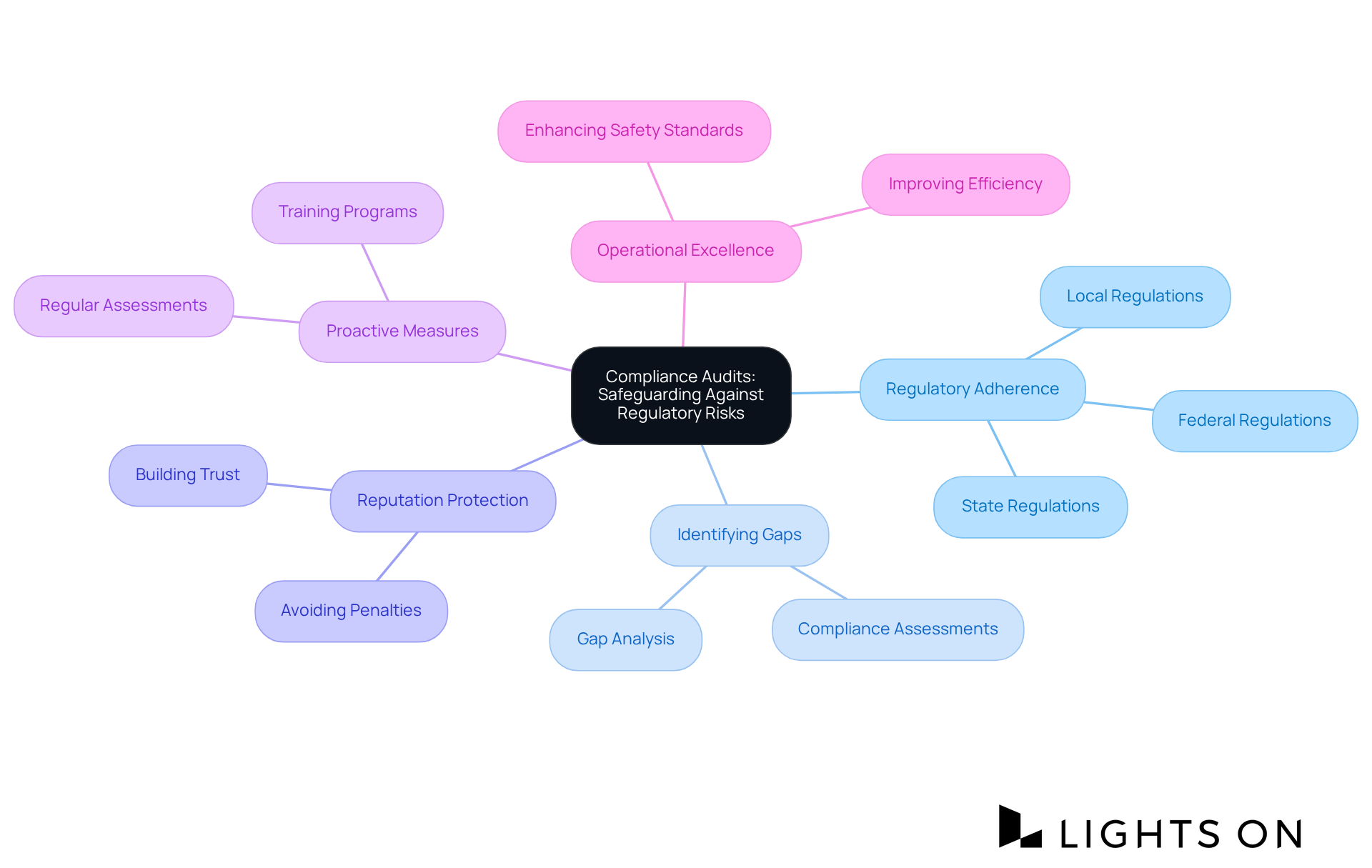
Revenue management assessments are crucial for understanding the interplay between pricing strategies, market demand, and competitor pricing. By thoroughly evaluating these elements, establishments can adeptly adjust their pricing strategies to optimize revenue. This ensures they remain in an ever-evolving market landscape.
Are you leveraging these assessments to their full potential? By doing so, you not only enhance your pricing strategies but also position your establishment for sustained success.

Operational assessments, including hotel audits, play a critical role in evaluating various aspects of lodging operations, such as:
By identifying inefficiencies and pinpointing areas for improvement, accommodations can refine their operational procedures. This proactive approach not only enhances but also drives higher profitability. Furthermore, it is essential for hotel and restaurant owners to recognize that hotel audits are not merely routine checks; they are strategic tools that can lead to significant operational advancements.
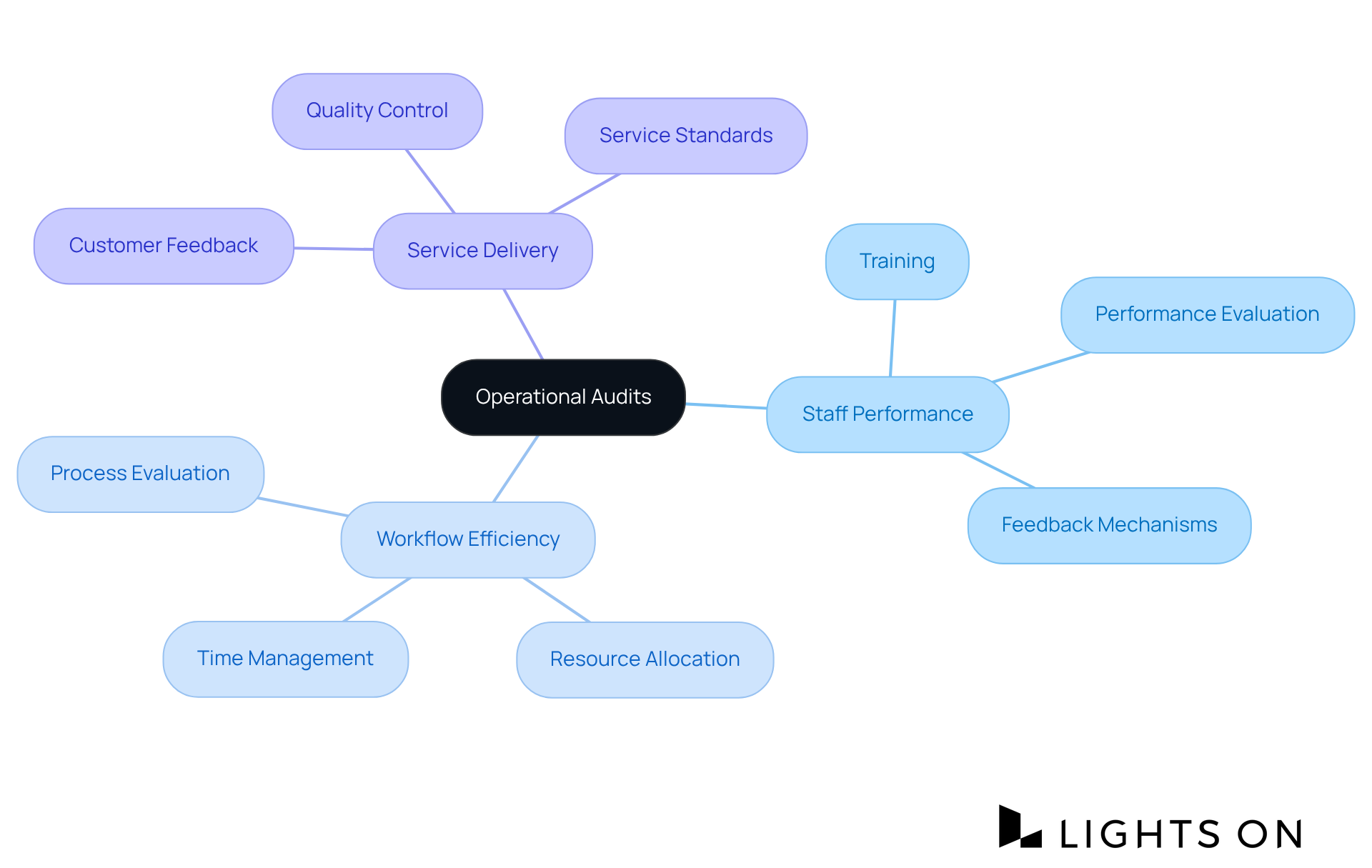
Safety evaluations are critical in assessing an establishment's safety protocols and emergency readiness strategies. By identifying potential risks and ensuring strict adherence to safety standards, accommodations can foster a secure environment that protects both visitors and employees. This proactive approach not only enhances safety but also significantly improves the overall experience for patrons. Ultimately, investing in robust safety measures is not just a regulatory requirement; it is a strategic imperative that can elevate an establishment's reputation and operational success.
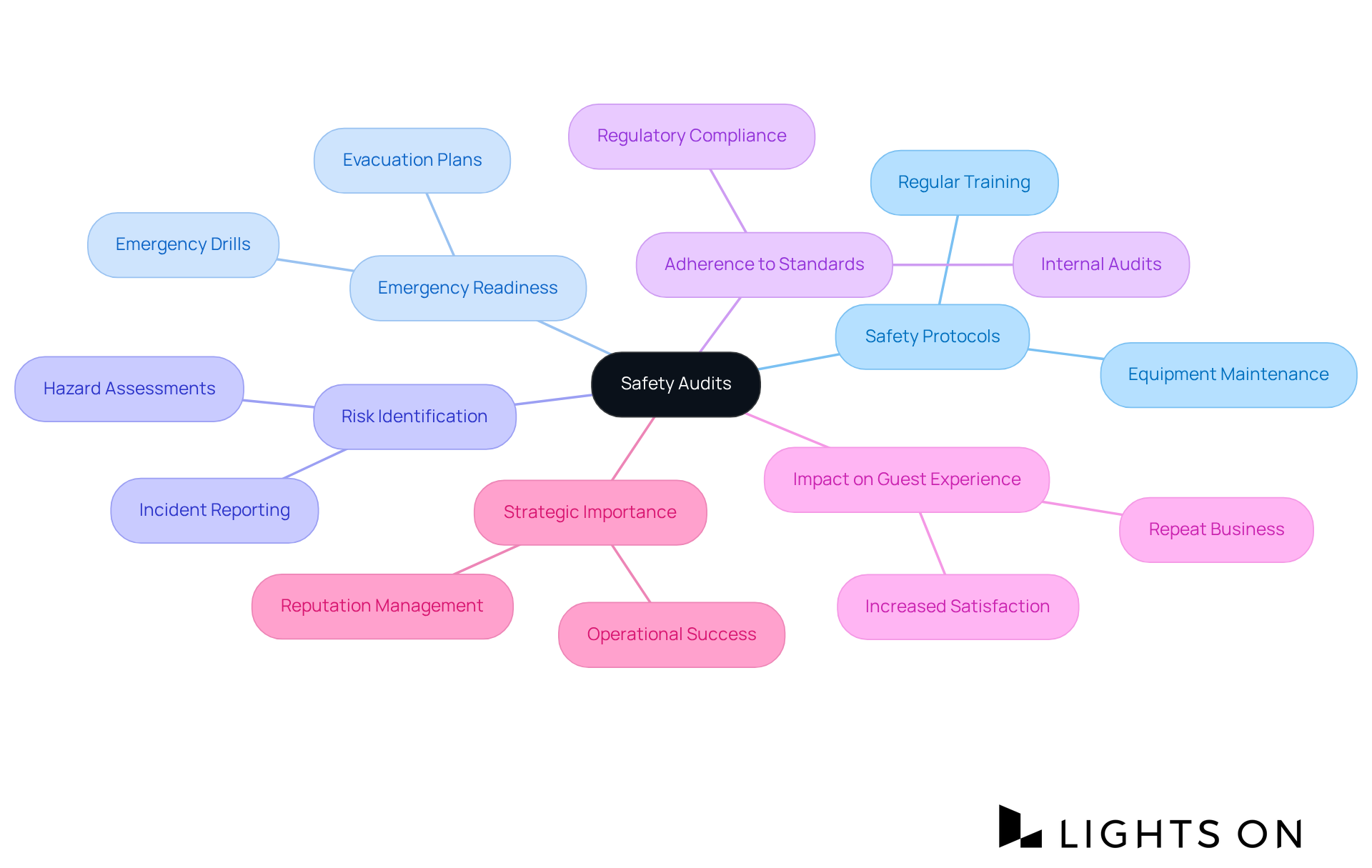
Inventory assessments serve a critical role in analyzing an establishment's supply levels and usage patterns, effectively identifying discrepancies and inefficiencies. By optimizing inventory management procedures, establishments can not only minimize waste but also decrease expenses significantly. This ensures that they possess the consistently. Furthermore, taking proactive steps in inventory management not only enhances operational efficiency but also elevates guest satisfaction, fostering loyalty and repeat business.
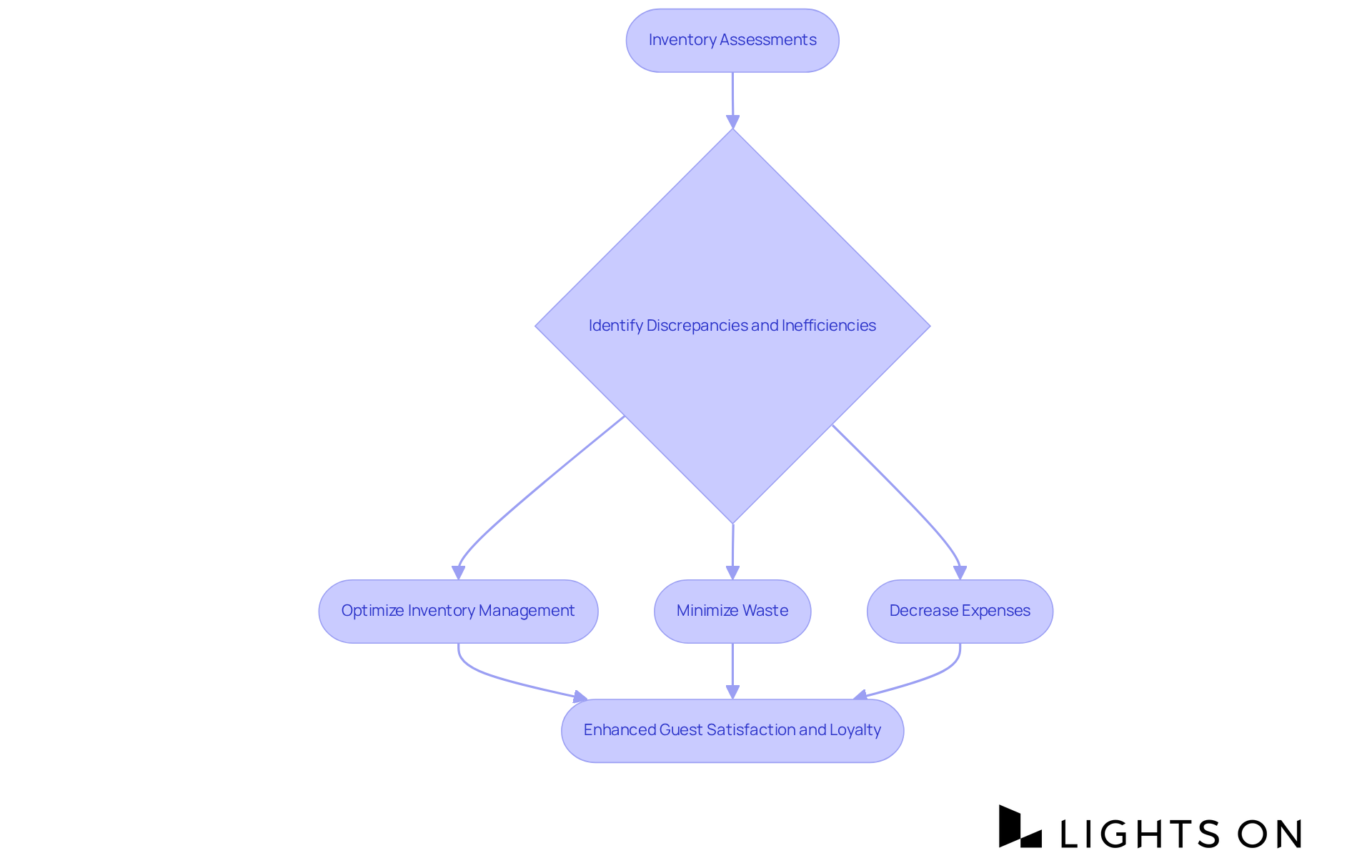
Financial audits serve as a critical evaluation of an establishment's financial records, ensuring strict adherence to accounting standards. This process not only fosters transparency and accountability but also empowers hotels to cultivate trust with their stakeholders through the implementation of hotel audits. By making informed financial decisions, establishments position themselves for long-term success, reinforcing the importance of hotel audits in their operational strategy.
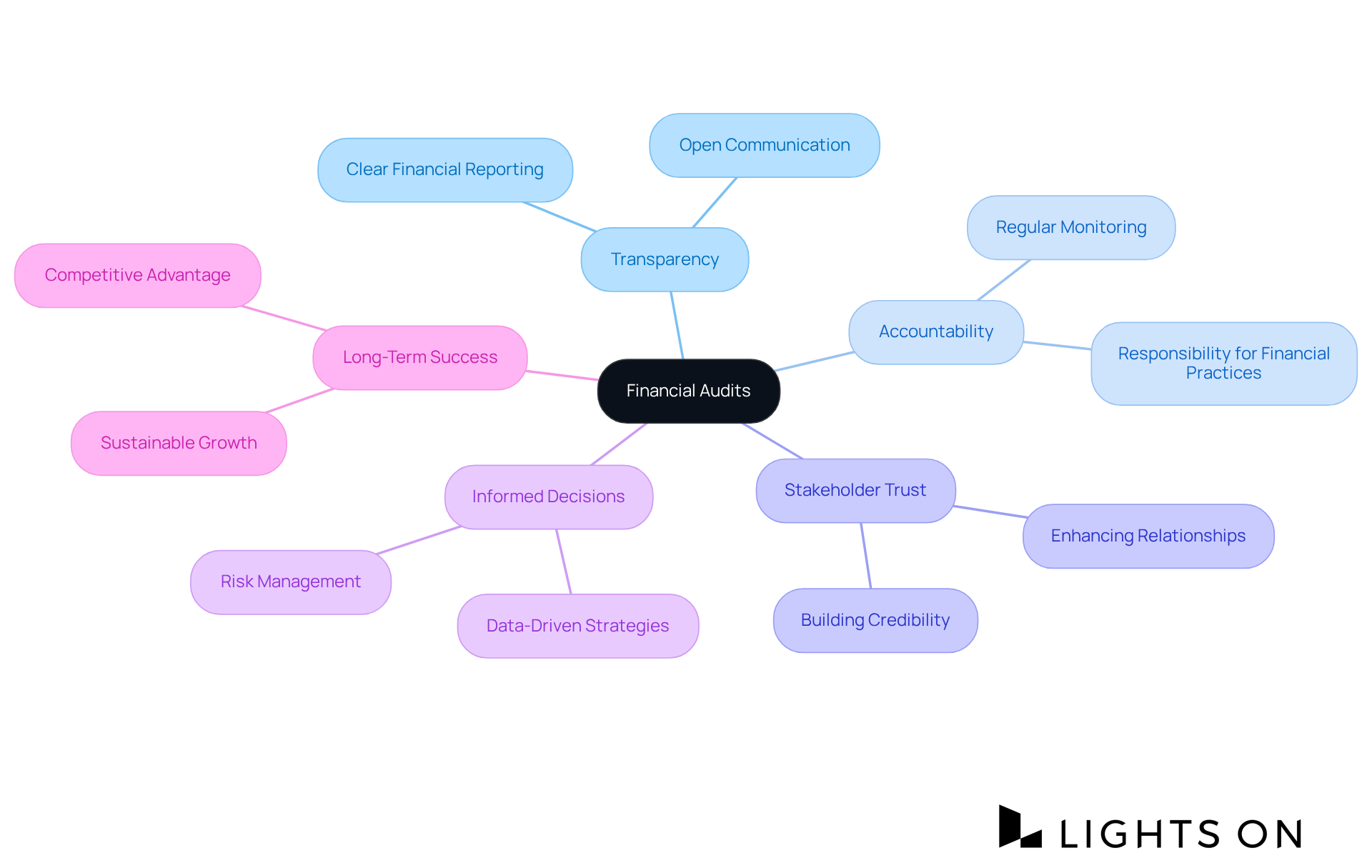
Maximizing operational success in the hospitality industry hinges on the implementation of essential hotel audits. These evaluations not only enhance profitability but also improve guest experiences, ensuring that hotels remain competitive in a rapidly evolving market. By embracing a comprehensive approach to audits, establishments can strategically address weaknesses, optimize processes, and foster a culture of accountability.
The article highlights ten critical types of hotel audits, including:
Each of these plays a vital role in identifying areas for improvement, enhancing operational efficiency, and ensuring adherence to industry standards. By leveraging insights from these audits, hotels can make informed decisions that lead to increased guest satisfaction and loyalty.
In conclusion, the significance of hotel audits cannot be overstated; they are essential tools for driving operational excellence and achieving long-term success. Establishments are encouraged to prioritize these evaluations as part of their strategic planning. By doing so, they not only safeguard their reputation but also position themselves to thrive in a competitive landscape, ultimately delivering exceptional experiences that resonate with guests and foster repeat business.
What is the purpose of Lights On revenue management audits?
The purpose of Lights On revenue management audits is to evaluate pricing strategies, demand forecasting, and market trends to identify weaknesses in revenue strategies and apply data-informed adjustments that enhance profitability.
What benefits do accommodations gain from Lights On audits?
Accommodations gain actionable recommendations tailored to their unique market conditions, empowering owners to make informed decisions that drive success in a competitive landscape.
How do mystery guest audits enhance the guest experience?
Mystery guest audits provide vital insights into service quality, cleanliness, and overall visitor satisfaction by employing assessors to experience the service as a typical patron would.
What are the outcomes of implementing feedback from mystery guest audits?
Implementing feedback from mystery guest audits leads to targeted improvements, increased visitor satisfaction, higher occupancy rates, and a rise in positive online reviews.
Why is the focus on hotel audits expected to intensify as we move into 2025?
The focus on hotel audits is expected to intensify as hotels aim to meet evolving traveler expectations and utilize insights to foster genuine customer loyalty.
What is the role of night audits in accommodations?
Night audits reconcile daily transactions to ensure all revenue is accounted for, address discrepancies, and provide valuable insights into operational performance.
How do night audits contribute to operational effectiveness?
Night audits help establishments make informed choices regarding staffing and resource distribution, ultimately enhancing their overall effectiveness.
Transform your group booking strategies with Lights On and watch your occupancy soar.